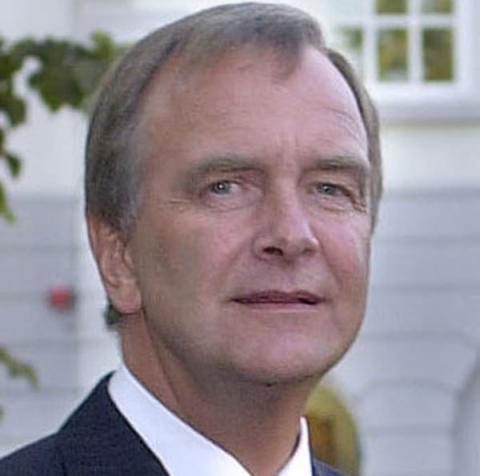Cullen's resignation brings a controversial political career to a close

Martin Cullen today announced his decision to resign from cabinet and as a TD. Cullen is suffering from a severe back ailment which causes him chronic pain, and has forced him to withdraw from politics.
This decision may push forward the expected cabinet reshuffle. Cullen's resignation follows the resignation of Willie O'Dea and Trevor Sargent from their ministries.
Cullen's resignation from the Dáil also necessitates a by election
in the Waterford constituency. This may well come as a further loss to Fianna Fail in government. By-elections have traditionally favoured opposition
parties, and Fianna Fail has rated abysmally in recent opinion polls.
Cullen was first elected to Dáil Éireann in 1987. He was one of 14 Progressive Democrats elected that year in the first election the party contested since its formation. He subsequently lost his seat in 1989, but was nominated to the Seanad by the then Taoiseach Charles Haughey.
Cullen regained his Dáil seat in 1992. He switched allegiances to Fianna Fáil in 1994, and soon found favour within his new party. He became junior minister under Bertie Ahern in 1997, and rose to his first full ministerial position, as Minister for Environment, in 2002. He has been ever present in cabinet since.
However, he was never far from controversy in his political career and, indeed, it is perhaps for this he will be best remembered. His first major issue during his time in cabinet was with regard to the implemenation of e-voting for the local and European elections in 2004.
Despite the fact that e-voting machines were found to be significantly flawed, Cullen gave the initiative his full support and has continued to say that the implementation of an e-voting system would be "far more secure". After several years and several million wasted euro, the initiative was eventually pulled.
However, more fiascos lay further down the line. During Cullen's tenure as Minister of Transport, Eddie Shaw, the head of the National Safety Council resigned because of government inertia on road safety. At the time, road fatalities remained high, and Eddie Shaw said Cullen lacked the "will" to tackle the issue of road safety. Shaw said he had failed to convince Government to invest in its own road safety policies.
Cullen also drew criticism for overseeing the privitasation of Aer Lingus. Critics, such as Labour's Roisín Shortall, highlighted the strategic importance of Aer Lingus to Ireland as an island nation and accused Cullen of pushing for privatisation for "ideological" reasons. However, Cullen said that he had made "the right decision".
Cullen was also an enthusiastic user of the expenses system during his time in cabinet. His trip to the Ryder Cup in September 2008, for example, cost the taxpayer $800 dollars a night in accomodation alone. He also drew particular criticism for travelling first class to the Beijing Olympics, despite the fact that Ireland's athletes travelled in economy class.
He was again thrust into controversy when it was falsely alleged that he had an affair with businesswoman Monica Leech. The allegations were found to have no merit, and Cullen called the actions of the press "reprehensible". However, he drew great criticism for comparing the press invasion into his personal life to being "raped".
Cullen's career in cabinet was undoubtedly a colourful one and chequered with controversy. His resignation, meanwhile, limits further the government's regional representation in cabinet. It was often argued that, considering his record in cabinet, Cullen kept his ministerial position because of a government desire to satisfy regional voters.
His resignation leaves Taoiseach Brian Cowen with something of a selection headache ahead of the expected cabinet reshuffle.
However, the prospect of by elections in both Waterford and Donegal, where Pat 'The Cope' Gallagher left his seat to become an MEP, is of equally serious concern. Losses in both will increase the coalition's dependence on independent TD's, and could reignite calls from the opposition for a general election.
